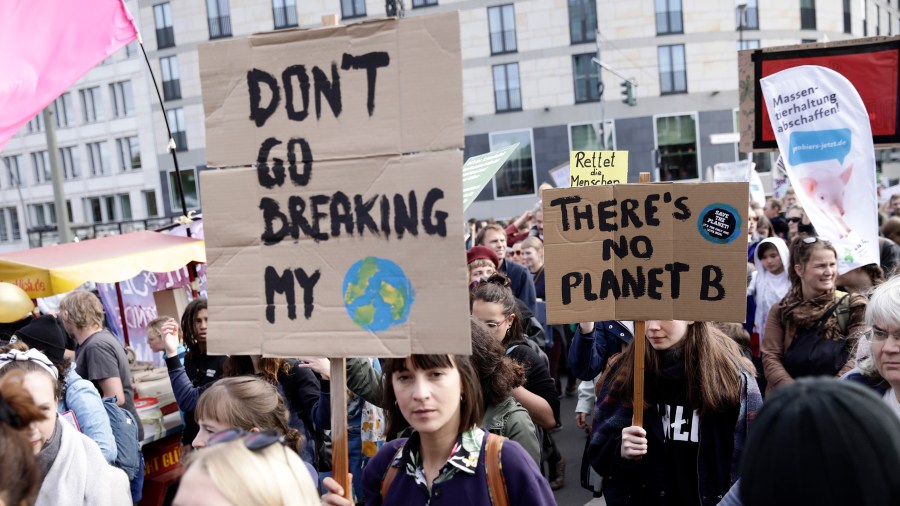Refocusing climate change as a human problem

This episode originally aired on Sep. 30, 2020.
For this holiday stretch, I’ll be looking back at some of our big topics from 2020. At the top of the list this year and next is climate change. In our series “How We Survive,” I’ve been talking about how to adapt to climate change and how technology can help. But we have to acknowledge that climate change isn’t just about tech solutions or whiz-bang inventions and, in fact, like the pandemic, climate change is a problem that reflects and exposes lots of things about our society.
I spoke with Ayana Elizabeth Johnson and Katharine Wilkinson, who co-edited a book called “All We Can Save: Truth, Courage, and Solutions for the Climate Crisis.” It features poems, essays and other works of art by women working on climate issues. Wilkinson told me that there’s a lot in that subtitle. The following is an edited transcript of our conversation.

Katharine Wilkinson: We need to have eyes wide open to what is happening. Listen to the science. We need courage. And then, of course, we need solutions. And not just the solutions that the climate bros are really into, like EVs and solar panels — we definitely need those. Ayana just got a Tesla.
Ayana Elizabeth Johnson: I think that’s the trifecta though: truth, courage and solutions. When people are like, “Well, if not hope, then what?” that’s our answer.
Molly Wood: When did we find ourselves at a point where we sort of stopped talking about climate as the thing we live, the air we breathe, the rain that falls or doesn’t fall? Do you think it’s important to, even before we start talking about solutions, to recenter the conversation as a human problem?
Johnson: Even though we didn’t cause this problem — it’s, in fact, 100 corporations who are responsible for 71% of emissions. There is a wide range of possible futures, and we deliberately curated this book to show the wide range of ways that people can contribute to building the best possible future. It includes farmers and architects and artists and journalists. And of course, scientists and policy experts and lawyers. And all of those skills are needed and very much wanted.
Wood: How much of this storytelling is also about making the simple economic argument that saving people also saves money?
Johnson: When we talk about the cost-benefit analysis of doing various things to address the climate crisis, we usually only focus on the costs as opposed to making sure that we are also thinking about the benefits. And I think that is quite bolstering to me as a marine ecologist by training and thinking about nature-based solutions, and how protecting and restoring nature actually makes financial sense. Because it’s cheaper to have mangroves and marshes and sea grasses than sea walls, for example. So I think this book really shows not just some sort of techno-utopian version of the future, where we innovate our way out of everything. And instead, it talks about the huge array of work that needs doing and the costs of not doing it, and what the world could look like for the better if we do.
The future of this podcast starts with you.
Every day, the “Marketplace Tech” team demystifies the digital economy with stories that explore more than just Big Tech. We’re committed to covering topics that matter to you and the world around us, diving deep into how technology intersects with climate change, inequity, and disinformation.
As part of a nonprofit newsroom, we’re counting on listeners like you to keep this public service paywall-free and available to all.
Support “Marketplace Tech” in any amount today and become a partner in our mission.












